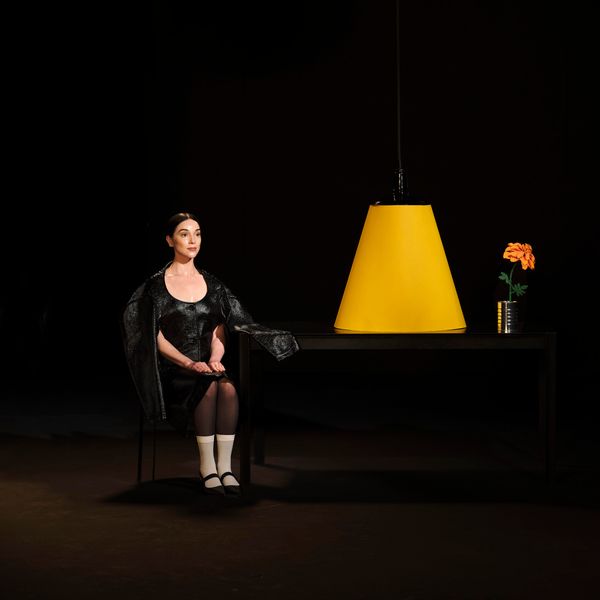
St. Vincent Loves Being a Human
Apr 29, 2024
“You just love being a human,” St. Vincent says to me with a knowing grin as I walk out of one of the studios of New York City’s Electric Lady.
Earlier, I’d joked that her seventh album reminded me of the time I did ayahuasca with a lax shaman in the middle of Joshua Tree. There in the desert, crying and puking, a voice came to me clear as day: “You just love being a human,” it mocked impishly. It was right. The love of it, the sadness of it, the fear, the triumph and, even, its transient underbelly — I did in some way relish in it all, and St. Vincent’s All Born Screaming, with its raw reflection on death, life and adulation, made me wonder if she did, too.
Just a short hour before, St. Vincent walked with me into the studio, smiling as she explained that it was the same place she’d recorded most of the album’s vocals. Although she’s co-produced on all of her previous albums, All Born Screaming marks her first entirely self-produced collection. As we sit on the leather couch across from the soundboard, I ask why she decided to produce it alone. “I just wanted to be as raw as possible and push myself to places I hadn’t been as an artist,” she says. “Life sometimes brings you to your knees, and you can’t go over it, you can’t go under it. You just gotta go through.”
Despite any hints at what the it she went through may be, the fruits of that experience did not manifest into a collection of downtrodden, sad songs but instead, into a dark love story — one she couldn’t have written until now. “There are those rubicons in life that we all have to cross,” she says. “Whether it’s grief or losing someone we love... people could tell you about it all they want, but you just don’t know until you’re there.”
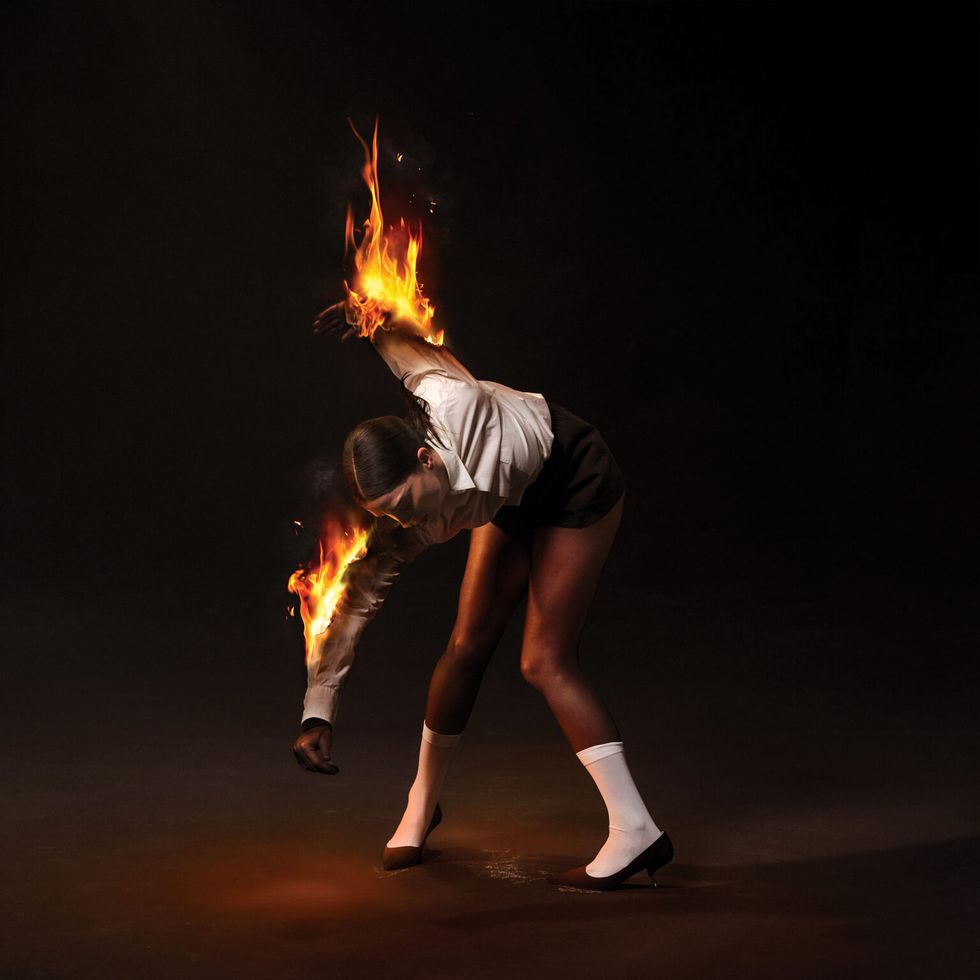
St. Vincent didn’t arrive at All Born Screaming with a map or compass, but by “making these beautiful or neat little puzzle pieces and spending just hours and hours obsessing over the shape of it.”
“Does it go like this? Does it go like that?” she explains. “Drawing it in, penciling it in and going, ‘Oh, this little puzzle piece, I love this.’ No one tells you what the big picture is until you're done with every single puzzle piece. Then you stand back from it, you go, ‘Oh, that's what I was doing.’”
In 2021, St. Vincent was doing something quite different. Her fifth album, Daddy’s Home, was aesthetically lifted from the ‘70s and took its sonic inspiration from the songs her father loved, and its name from her desire for agency as she took on the moniker “Daddy.” She admits the collection may have been “largely misinterpreted but I have no regrets—it’s what I needed to do” in the All Born Screaming album bio.
In 2017, she released MASSEDUCTION, with enough guitar, hot pink neon tights and stories of sex, power and fame to bolt you through time and space by way of synth. In both instances, she’d embodied an archetype, a version of herself that matched the world she’d built piece by piece for the album. But with her latest offering, and even sitting across from me on the couch, her dark hair parted neatly, a scarf around her neck and a disarming, approachable tone imbuing each answer — she seems slightly removed from the woman I’d witnessed confidently holding a pointy Ernie Ball guitar in a cutout bodysuit, singing about seduction on a brightly lit stage — almost as if she’s more Annie Clark than her alias St. Vincent during this album cycle. But the power is still there.
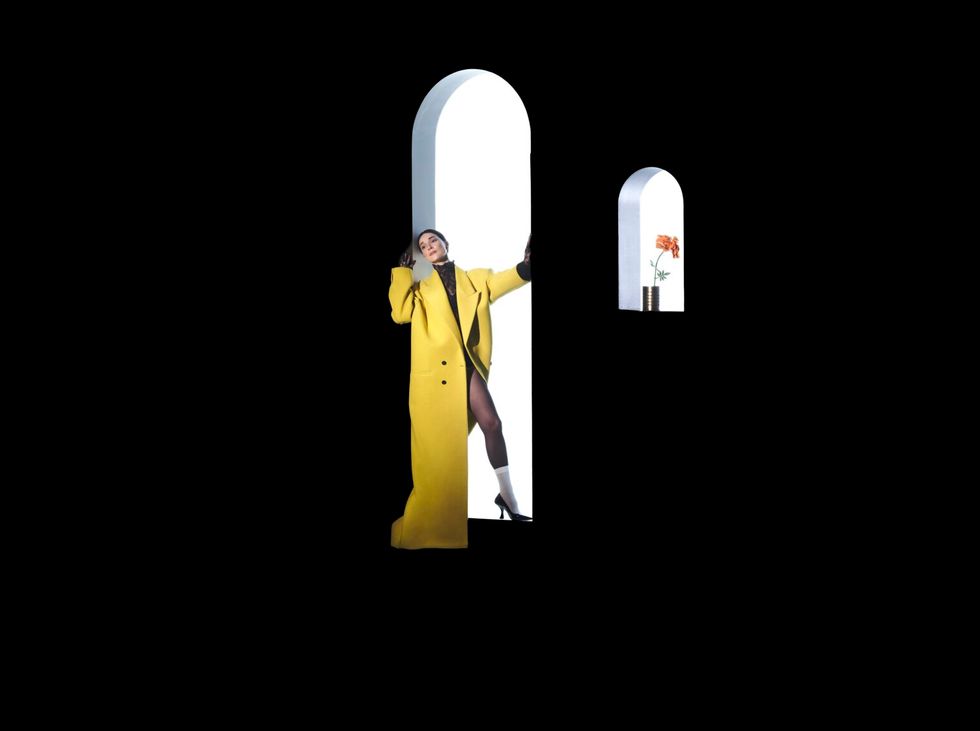
The album opens with a stirring, psychedelic trip of a song called “Hell Is Near,” her voice echoing “to begin to be” over layered walls of sound. In the chorus, she sings clearly, “I was bare/ And your word was still warm in my hand/ I was bare/ Wanted all under Heaven allowed.”
“That was one where I wrote and rewrote the lyrics,” she says. “That was a song that if I didn’t bow before it, it just wouldn’t happen. I sang it 100 times. The chorus is bare... and I have to actually be there to sing it and for it to be real and not throw a bunch of ego or bullshit,” she says, before mimicking singing the word “bare” with multiple vocal runs. “Just the emotion and the melody... don’t get in the way, don’t get in the way.”
In “Big Time Nothing” Clark shifts from speaking to singing, “I look inside, I look inside, I look inside/ Nothing,” over the friction of distorted guitars and a gritty bassline. “I had all the verses written — I was working on that song for three years because I’m a crazy person,” she says of the track. “I was trying to crack the verses because there’s a lot of energy in the song because of the baseline and beat, and you can’t put a complicated melody on top of that. It’s too much. It’s such a tricky balance.” She ultimately decided to go “Tom Tom Club with it” and plainly recite her inner monologue. “The track has energy, the track is going to do the rest so if you try to match the energy of the track with a bombastic vocal? It’s like, say less.”
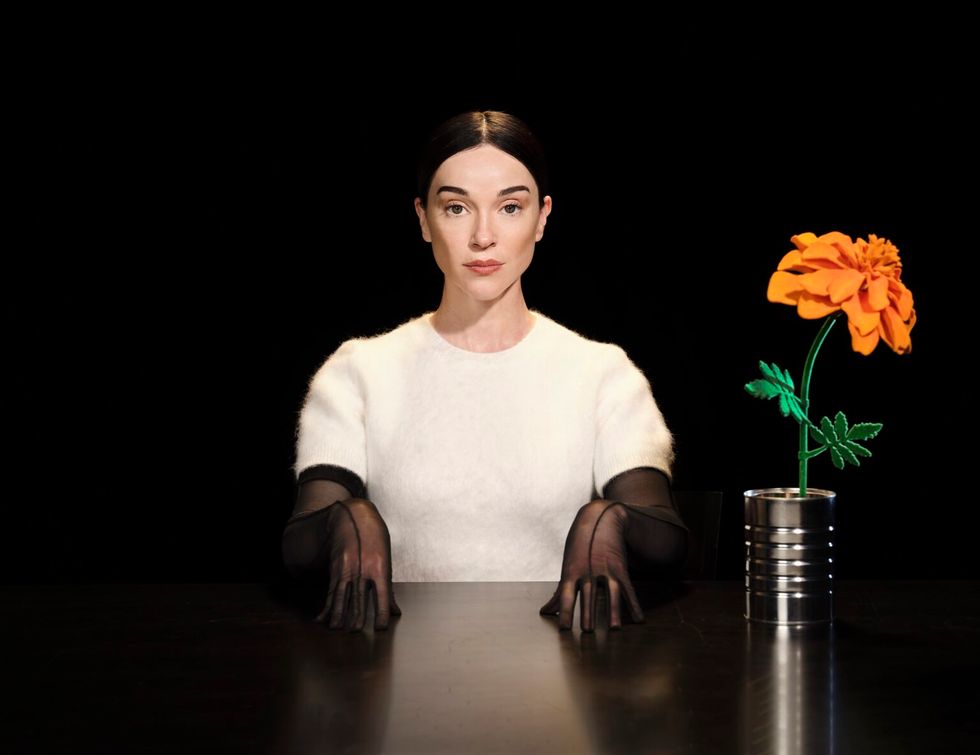
Though she may have said less, and done less as far as creating an alter-ego for the album, it doesn’t make All Born Screaming anything short of a creative feat for Clark. “It was so labored- over, and I don't mean that in a bad way,” she says. “It was just so labored-over,such a process to get there, to strip away anything that didn't feel exactly right and to be more intentional about every sound, intentional about every word not that I wasn't before, like casting aspersions on previous work. But I do think, too, there are emotional places you will only go alone. I wouldn't have screamed like that on “Broken Man” if I had my engineer, if he had been in the booth like, ‘Great, let’s do another take.’ I've also been recording myself since I was 14. That’s how I've learned how to arrange, that's how I've learned how to write, it's not necessarily been me and my garage band with my buddies. In that way, it feels like a very natural conclusion.”
All Born Screaming gave Clark the chance to make peace with “ego as a singer, guitar player or whatever.” “You’ve got to keep those things in check,” she says. “Not every song needs guitar. And the part of me that’s like, ‘Well, I'm a guitar player always in my head, you would not do the best thing for the song. You got to do the best thing for the song.”
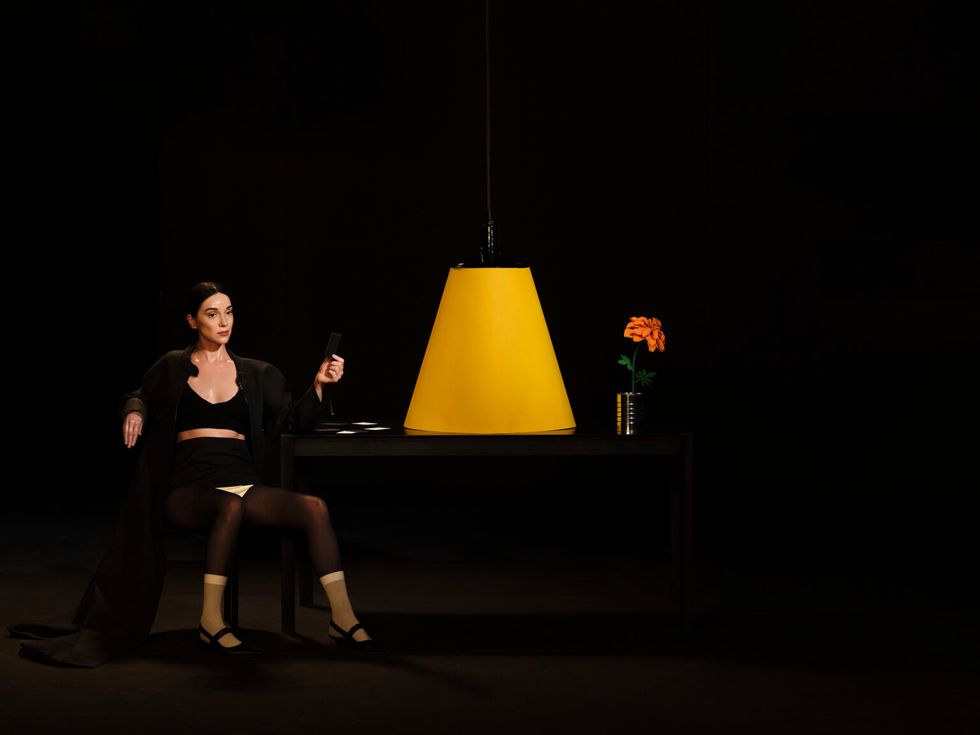
In some cases, those “best things” have been stirred online debates. The sound behind “The Sweetest Fruit” came about as she programmed a modular synth to play something “weird’ she could “listen to for a long time.” When the song's lyrics hit social media feeds, many questioned the opening lines about late music producer and songwriter SOPHIE, wondering if she was trying to capitalize on her death.
In the opening, Clark sings, “My SOPHIE climbed the roof/ To get a better view of the Moon/ My God, then one wrong step/ Took her down to the depths/ But for a minute, what a view/ What a view.” Elsewhere in the song, she sings of Daniel Sotomayor, a queer creator who also had a devastatingly short life. “It’s a noble act to go out on a limb to find beauty,” she told Rolling Stone UK of the track. But, even with the questions around the song, the underlying discourse still points to the album’s theme. The risk you take, creatively and otherwise, to experience love. “It’s everything,” Clark says of the emotion threading her album together. “The beauty and the brutality — all a part and parcel.”
“This one feels different somehow,” Clark says of All Born Screaming. “I don't know if it's me and where I'm at in my life or the ease of being in my own skin. As heart-wrenching in certain ways the record was to make, it’s an easy record to talk about,” she says. To be born screaming means to be alive. To appreciate being human, means, in some ways, to appreciate pain. Clark’s latest is a testament to that fact, that good bad or indifferent, a bawl, a shriek, a cry, means we have something worth screaming for: “Life is impossible, but we get to live it so we better live it and live it for love.”
Photography: Alex Da Corte
From Your Site Articles
- St. Vincent Covered Nine Inch Nails ›
- St. Vincent Asks, 'Who's Your Daddy?' ›
- St. Vincent "Reckless" Video Premiere - PAPER Magazine ›
Related Articles Around the Web
MORE ON PAPER
Cardi B sorprende con una presentación inesperada y deja a todos “Ready Pa’l Show”
Español
Feb 14, 2026
ATF Story
Madison Beer, Her Way
Photography by Davis Bates / Story by Alaska Riley
Photography by Davis Bates / Story by Alaska Riley
16 January
Entertainment
Cynthia Erivo in Full Bloom
Photography by David LaChapelle / Story by Joan Summers / Styling by Jason Bolden / Makeup by Joanna Simkim / Nails by Shea Osei
Photography by David LaChapelle / Story by Joan Summers / Styling by Jason Bolden / Makeup by Joanna Simkim / Nails by Shea Osei
01 December
Entertainment
Rami Malek Is Certifiably Unserious
Story by Joan Summers / Photography by Adam Powell
Story by Joan Summers / Photography by Adam Powell
14 November
Music
Janelle Monáe, HalloQueen
Story by Ivan Guzman / Photography by Pol Kurucz/ Styling by Alexandra Mandelkorn/ Hair by Nikki Nelms/ Makeup by Sasha Glasser/ Nails by Juan Alvear/ Set design by Krystall Schott
Story by Ivan Guzman / Photography by Pol Kurucz/ Styling by Alexandra Mandelkorn/ Hair by Nikki Nelms/ Makeup by Sasha Glasser/ Nails by Juan Alvear/ Set design by Krystall Schott
27 October
Music
You Don’t Move Cardi B
Story by Erica Campbell / Photography by Jora Frantzis / Styling by Kollin Carter/ Hair by Tokyo Stylez/ Makeup by Erika LaPearl/ Nails by Coca Nguyen/ Set design by Allegra Peyton
Story by Erica Campbell / Photography by Jora Frantzis / Styling by Kollin Carter/ Hair by Tokyo Stylez/ Makeup by Erika LaPearl/ Nails by Coca Nguyen/ Set design by Allegra Peyton
14 October




